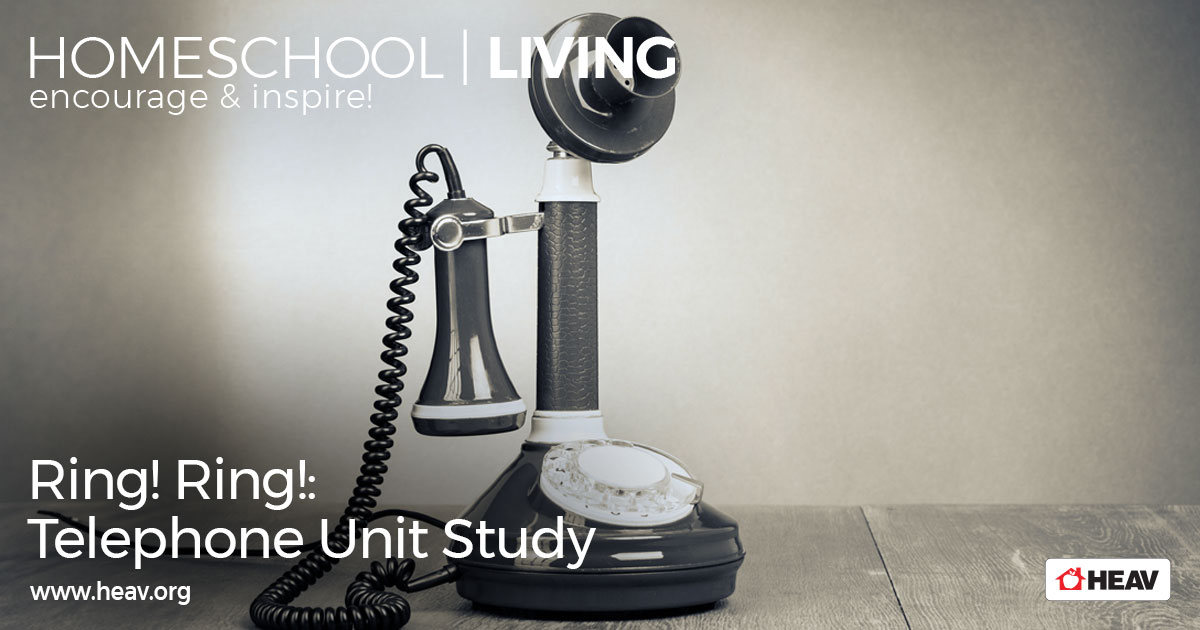Telephone Unit Study
Tomorrow is National Telephone Day, which marks the anniversary of the day Alexander Graham Bell introduced his “electric speaking machine” in 1876, a revolutionary milestone in the history of communication. Take the opportunity to incorporate some telephone-themed lessons, activities, and experiments into your homeschool to create your own telephone unit study.
Talking Telephone
This mini telephone unit study features a great synopsis of the development of the telephone, as well as a photo gallery of the first telephone, a biography of Alexander Graham Bell, activity and coloring pages for littles, and more.
How Stuff Works has a great overview of different types of telephones and how the technology has developed over the years.
The classic string telephone experiment is still one of the best simplified demonstrations of the concept behind the original telephone and how sound waves can travel. This blog post from Raising Lifelong Learners shares the process of creating and using a string telephone for a simple but effective STEAM lesson.
Telephone, Tribute, and Telecommunication
In a world where so much of our communication focuses on efficiency and convenience with text and emails, this article shares some compelling reasons for people—especially young people—to utilize the voice call function of their telephones. Engaging with someone else, hearing their voice, and spending some time in conversation is important for forming and strengthening relationships and for an individual’s own mental health as well.
Phone etiquette in the 21st century isn’t necessarily knowing how to answer the family landline and take a message. This guide to modern phone etiquette for kids features some interesting points about being aware of the people around them as they chat or video call, checking in with friends via text to schedule calls, and being able to speak comfortably with parents or other family members who might answer the phone before their friend gets on the line.
Tides of Telephone Transistors
These days, cell phones are much more than just a telephone. They’re mini computers that come with a host of potential benefits as well as risks. There’s an endless balance between utilizing the technology we have available for educational, social, and leisure purposes and allowing the draw of infinite entertainment and access to control our time and rewire our brains. This article from Childmind.org shares some important points to consider when you decide how and when your child should have access to a phone of their own.
Megan Mora Fuentes
Enjoy this article?
For more insightful and encouraging homeschool related articles, homeschool living tips, and homeschool connections, please visit our HEAV blog. Click here!









